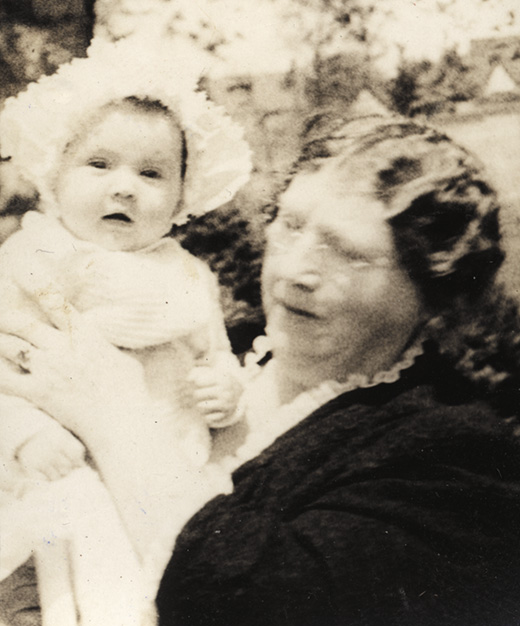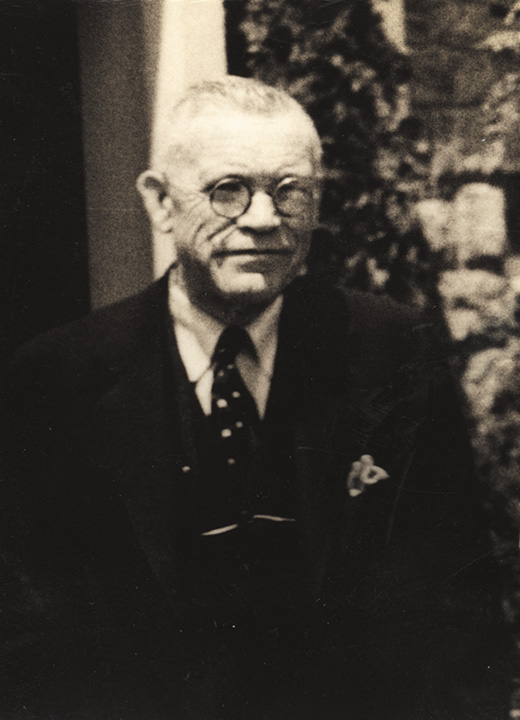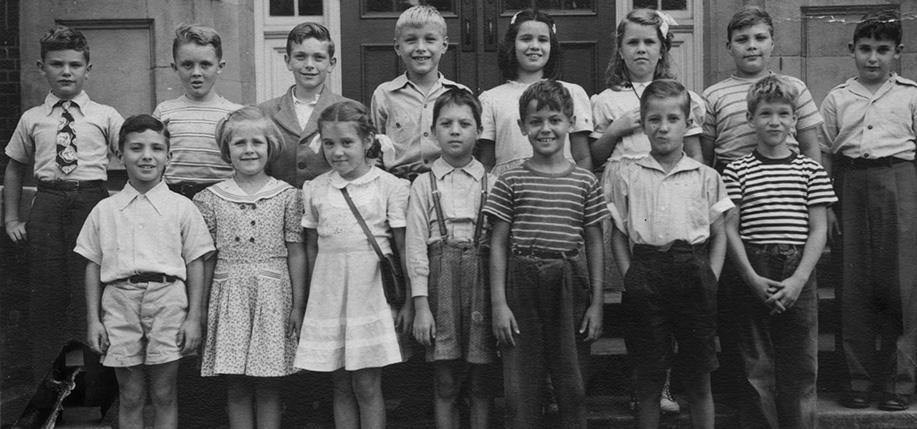My grandparents were born in the Irish midlands in the 1870s, the decade that the Home Rule movement began. My grandfather Mick O’Rourke, a thatcher, was from Drumgilda, County Leitrim. My grandmother Martha Thompson was a Ballinamuck woman. She worked in her grandmother’s shop in Drumlish before her family sold a heifer to raise her passage so that at 16, in 1894, she could become one of the 231,956 young Irish women who arrived at the port of New York during the 1890s.
She started work as an upstairs maid in a big house on Fifth Avenue where she became a fluent speaker of kitchen German and a connoisseur of fine china, linen, and furniture. She married Michael O’Rourke on January 3, 1904 at the Church of St. Boniface. Like many other young couples, they had met at a county society dance in New York.

The O’Rourke brothers had saloons on the West Side. Family folklore has it that temperance firebrand Carry Nation was so charmed by Uncle Dan that she holstered her hatchet and moved along to break up other dens of drink. Not nearly so colorful, my grandfather’s place, near the National Biscuit Company on Ninth Avenue, was close enough to their apartment for my grandmother to take her two little boys along with her each day when she brought baskets of free lunch.
A vivid early memory for my 91-year-old father is the April day when the lunch crowd arrived anxious and distraught with the news of the sinking of the Titanic. Among the passengers were Longford people, including the Kiernan brothers and the Murphy sisters from Fostragh near Drumlish and James Farrell from Ballinalee.
During our childhood, our widowed grandmother lived with us among a wide network of cousins in a largely Irish parish. She was affectionate and generous, but like many Irish, she wasn’t good at resolving conflict. She just never spoke to you again. With us, when she was reproachful, she threw her fox fur around her neck and marched majestically a mile to her lawyer in Lynbrook to cut us out of her will.
In the ’50s Ireland was, in poet Marianne Moore’s words, “The nicest place I’d never been,” but it was my passion: school projects, drawings, a folder of newspaper clippings including my prize, a colored page from the New York Daily News confirming for all doubters that the O’Rourkes were descended from the kings of Ireland. We may have been descended from kings, but we were considered apostates in the neighborhood because we went to public school. My sensible teacher mother opted for a first grade with 19 students over St. Raymond’s first grade with 72.
We took our Irishness for granted – so much so that it wasn’t until I spent a student year in Ireland that I realized I was American. The sensibility of the Irish-American community of my early years was ethnic: differential, familial, hierarchical, and parish-centered. Social life was mainly conversation over cups of tea; we looked forward to the good talkers, appropriated their mots, retold their stories. And we sang. First it was all the old sentimental Irish-American songs; later, with the Clancy Brothers, we learned to play and sing Irish ballads.

Then when I was 11, there was The Quiet Man (1952). While some critics over the years have dismissed the film as sentimental kitsch, for Irish Americans it was the real thing. It animated Ireland for me for a decade: the scenery, the music, and the talk. For years, “It’s a soft night, so I think I’ll go and talk a little treason with me comrades” was the family exit line; “Homeric” covered everything out of the ordinary. As James MacKillop commented in his essay “The Quiet Man Speaks,” the film announced the beginning of third-generation return literature. While I did not wish to repossess my own “White O Morn,” I wanted to reclaim its history and some of its culture.
When Maureen O’Hara confided to Ward Bond that her marriage to Sean was unconsummated, she spoke to him in Irish. That was a defining moment for me. (That the Irish-speaking mother of a school friend was scandalized by the conversation only added to the intrigue of the language.) My grandmother could offer little help; Irish was the language of her grandmother.
My search for a book to help me learn the language took me to Irish Industries, a dusty shop on Lexington Avenue, where I heard Irish spoken, bought Father O’Growney’s Simple Lessons in Irish and later, one at a time, the books on the small shelf that became the start of my library of Irish folklore.
Coming of age in the 1960s coincided with the beginning of Irish Studies. Gilbert Cahill and Robert Rhodes, two of my teachers at State University of New York at Cortland, were members of the new American Committee for Irish Studies. With their encouragement, my interests in Irish history and literature transformed a passion into a vocation. I had the good fortune to have a Fulbright to Dublin in 1965-’66 where generous mentors and teachers in Ireland guided my research. Jude Mheait taught me Irish in Indreabháin.
My memories of Dublin are captured in the black-and-white photographs of William Lawrence; it was still a Victorian city. For Americans in those years Ireland was our safe place on the ridge of the world, removed from the growing opposition to the war in Vietnam, a hiatus before the scramble for tenure. The academic year began with the Yeats Centenary and ended with the Jubilee of the Rising. Revisionists waited in the wings, but meanwhile talked with those who made history.
Ireland gave me my work, my closest friends, and in my current projects – the Great Irish Famine curriculum and a book about Irish domestic servants in the United States – the opportunity to teach others about Irish and Irish-American history and culture. And the Irish-American community in New York gave me fellowship and the opportunity to work for Ireland in America.
In his poem “Our Stars Come from Ireland” Wallace Stevens transformed lines from Thomas MacGreevey’s “Homage to Hieronymus Bosch”:
High above the Bank of Ireland
Unearthly music sounded,
Passing westward
…to offer this image of Ireland and Irish America in the poem’s last section:
These are the ashes of fiery weather,
Of nights full of the green stars from Ireland,
Wet out of the sea, and luminously wet,
Like beautiful and abandoned refugees.
The whole habit of mind is changed by them,
Those Gaeled and fitful-fangled darknesses
Made suddenly luminous, themselves a change,
An east in their compelling westwardness…
For me Ireland has been my réalta eolais, my guiding star: “Gaeled,” “fitful-fangled,” and, above all, “compelling.” ♦
_______________
Maureen Murphy is currently working on a book about Irish domestic servants in the U.S. to be called Hope from the Ocean.


Leave a Reply